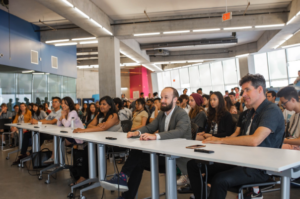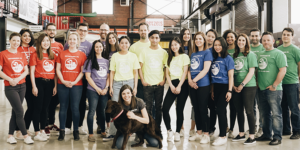In this episode of BusinessCast, powered by DMZ, Madusha Cooray sits down with host Robert Gold to talk about the benefits of technology-focused mentorship for founders and developers.
Madusha, who previously worked with over 2,000 founders at an incubator space and is now the DMZ lead for Google Developer Launchpad, shares important lessons from North America’s Google Mentor Day, which took place at the DMZ on July 20, 2019.
In this episode, you’ll learn:
- What Google Mentor Day is all about, including who attended this year’s event and how it was structured
- Four lessons about mentorship that are useful for any founder faced with a technology decision
- How tech advancements are changing the speed at which startups can push out products
- Why Google Developer Launchpad partnered with DMZ for this event and what’s in store for the future
- The one thing Madusha encourages all disruptive innovators to keep in mind when looking for a mentor
If you’re facing tough technology decisions at your startup or are considering mentorship as a means of propelling your tech stack, you’ll benefit from this listening to this podcast.
Listen below.








